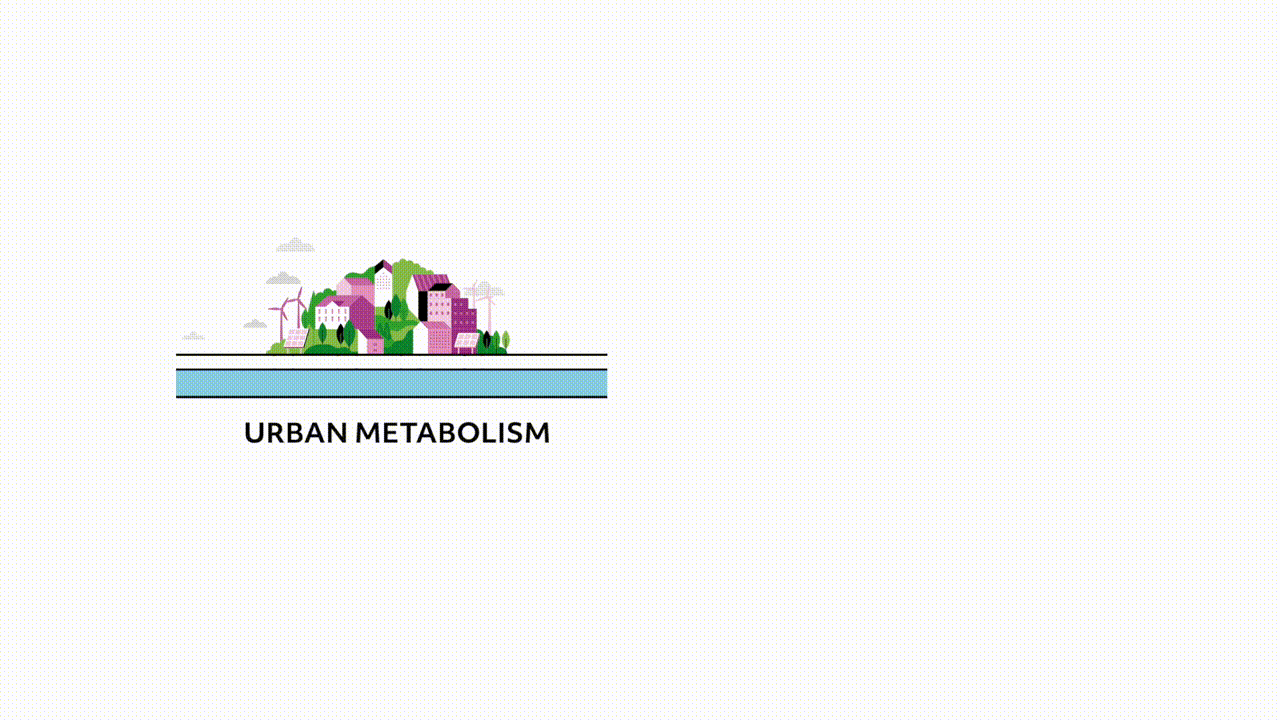Europe’s Urban Bioeconomy Vision
The EU Bioeconomy Strategy sees cities becoming major circular bioeconomy hubs, where biowaste is a feedstock for safe and sustainable bio-based products. But until now very few cities and regions have developed circular bio-based economy strategies or projects for the production of innovative bio-based products. HOOP aims to be the catalyst, providing Project Development Assistance (PDA) to 8 lighthouse cities and regions.
The graphic opposite visualises the urban bioeconomy concept. Here biowaste and wastewater are considered a resource and converted into products such as bio-fertilisers and bio-plastics. As a result they remain in the flow of materials – known as urban metabolism – following the principle of circular economy.

How does HOOP work?
The core work of the HOOP project is the provision of Project Development Assistance (PDA) to 8 lighthouse cities & regions. Learn more by about the project’s specific action areas, including challenges and solutions by clicking on the information buttons below.
15 Bio-Processes
15 Bio-Processes
Challenge
Very few European cities have developed projects for the production of innovative bio-based products, with the main focus being on compost, biogas and biofuels.
Solution
HOOP offers a portfolio of innovative processes to valorise OFMSW and UWWS, which produce added-value products such as bio-based chemicals, plastics and fertilisers. These processes build on the results of previous EU-funded research, namely Horizon 2020 projects SCALIBUR, ValueWaste and WaysTUP!.
10 processes to valorize OFMSW
- Biochemical conversion of the OFMSW
- Insects reared on HORECA waste
- Bioprocesses involving methanotropic bacteria using biomethane arising from the anaerobic digestion of the OFMSW
- Black Soldier larvae fed with OFMSW or digestate from anaerobic digestion
- Nutrients recovered from the residual dewatering liquid from anaerobic digestion
- Fermentation of spent coffee grounds
- Biochemical production of functional ingredients from animal by-products
- Bioprocess, fermentation 2,3 Butanediol from OFMSW + garden + UWWS
- Fermentation of used cooking oils
- Production of biofertilizers and biostimulants
5 processes to valorize UWWS
- Bioconversion of UWWS: steering CO2 fermentation with bioelectrochemical systems
- Insects reared on HORECA waste
- Bioconversion of UWWS: PHBV production
- Slow pyrolysis of UWWS
- Production and purification of volatile fatty acids
- Cellulosic rejections WWTP to Ethyl lactate biosolve
Local context and urban metabolism
Circular business
models
Local context and urban metabolism
Local context and urban metabolism
Challenge
Selecting the most appropriate technologies for OFMSW and UWWS valorisation in a given territory requires an in depth understanding of the local context.
Solution
HOOP is analysing the urban metabolism of each of the lighthouse cities and regions, mapping how materials flow in, out and around the territories. A further baseline study will show the state of urban circular bioeconomy development in each of the lighthouse cities and regions and identify barriers and opportunities. The outcomes of this study will contribute to define the specific investment projects in the lighthouse cities to valorise OFMSW and UWWS.
Lead partner
Circular business
models
Circular business models
Challenge
Prevailing business models are overwhelmingly linear and do not often consider the benefits of circularity, which can be hard to quantiy.
Solution
HOOP addresses this by developing a new Circular Valuation Method to incorporate the added value of circularity. Additionally, existing and successful innovative circular economy business models for urban circular bioeconomy are being identified. The novel circular business models are being matched and tailored to the needs of each of the lighthouse cities and regions, and then assessed to understand the bankability of the selected projects and business models.
Lead partner
Technological and environmental assessments
Innovative financial engineering & procurement
Technological and environmental assessments
Technological and environmental assessments
Challenge
To go beyond the valorisation of urban biowaste & wastewater solely as compost, biogas & biofuels requires the use of new and innovative technologies. Currently there is a lack of experience implementing these technologies at large scale and within the urban context.
Solution
HOOP helps bridge this gap by undertaking detailed technical (proof of concept, techno-economic feasibility, engineering) and environmental (life cycle assessment and others required by the local regulations) studies on behalf of the eight lighthouse cities and regions. These studies focus on the BAT selected by each of the lighthouses from the portfolio of bio-processes.
Lead partner
Innovative financial engineering & procurement
Innovative financial engineering & procurement
Challenge
Investing in innovation solutions which are new to the market requires specific financing solutions and procurement practices.
Solution
The HOOP Circular Investors Board helps mainstream investments in urban circular bioeconomy by co-developing tools and advising the lighthouse cities & regions. The development of the Circularity Maturity Level (CML) ranking method and a standardised due diligence process allows lighthouse cities & regions to build capacity with the final aim of preparing a ready-to-invest portfolio of circular economy project(s) at the end of the project. The preparation of procurement schemes utilising PCP (precommercial procurement) and PPI (public procurement for innovative solutions) will enable the launch of the tendering processes to trigger the investments in urban circular bioeconomy projects.
Lead partner
Stakeholder Engagement
& Mobilisation
Stakeholder Engagement & Mobilisation
Challenge
Changing an entire (bio)waste value chain requires the buy-in and commitment of all stakeholders involved, across the quadruple helix of industry and business, the scientific community, political and societal actors.
Solution
Recognising that all these stakeholders are – directly or indirectly – impacting the biowaste value chain and are vice versa also affected by it, the HOOP project puts the dialogue among them at the core of its local engagement activities. In order to ensure that the needs and interests of all actors are taken into account, local stakeholder boards steer and monitor all engagement activities in the HOOP lighthouse cities and regions. In the 8 Biowaste Clubs, the participants develop and implement shared visions for their circular cities/regions. Ownership of the project activities is, thus, given to the local and regional actors and it will be in their hands to co-create circular solutions and to establish new forms of collaboration and exchange. To find out more about the Biowaste Clubs and how you can get involved please contact us!
Lead partner
Replication Strategy
HOOP Network of Cities & Regions
The HOOP Network of Cities and Regions is a virtual space aimed at facilitating exchange of knowledge and mutual learning among cities and regions willing to recover valuable resources from urban biowaste and wastewater to make bio-based products. By joining the network, cities and regions will have the chance to access specific information on innovative bioeconomy solutions and engage in activities relevant to their own context and specific interests. Participants have the chance to get in touch with one another and engage in direct exchanges with the HOOP lighthouse cities and regions, sharing their own experience and expertise. Visit our network page for more information and to register your city/region!
Lead partner
The Urban Circular
Bioeconomy Hub (UCBH)
The HOOP Urban Circular Bioeconomy Hub is an online platform to foster knowledge exchange and replication in cities across Europe. The Urban Bioeconomy Hub is coming in 2022. Express your interest in being updated when it is launched by signing up for our quarterly newsletter.
Lead partner
Circularity Label
As an instrument to understand their current position/performance in implementing circularity at city level, HOOP is developing a circular ranking system to serve as the baseline for green policies and to boost investment projects for the production of urban biowaste & wastewater-based products. Cities and regions will be able to find out their circularity level by filling an online form in the Urban Circular Bioeconomy Hub.
Lead partner
Knowledge exchange activities
An array of activities will be carried out throughout the project duration to share learnings and foster replication of urban bioeconomy concepts among the HOOP network of cities and regions. This will include: national replication workshops in the 8 countries of the lighthouse cities and regions, one-on-one capacity building including peer reviews and training sessions, and thematic study visits and workshops. Online webinars and forums will facilitate peer-to-peer learning between lighthouse- and network- cities and regions. To be kept abreast of these activities subscribe to our newsletter or register your city/region to our network.
Lead partner
Virtual Academy
The HOOP Virtual Academy is an online space hosted on the Urban Circular Bioeconomy Hub and specially targeting follower cities, providing them with access to resources and interactive services related to Urban Bioeconomy. The Virtual Academy will gather both outputs from the HOOP project and resources from other initiatives.
Lead partner
HOOP Lunch Talks
Expected Impacts
Implementation
For more details on Partners and Budget, please visit CORDIS
Consortium
Coordinated by CETENMA, HOOP includes 22 partners from 10 countries around Europe.
Click on the logos below to discover each partner and their teams.









